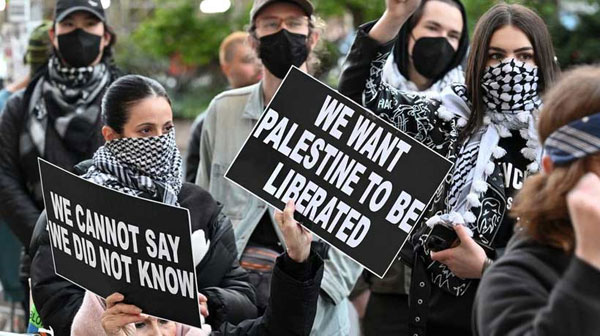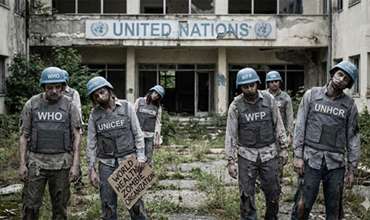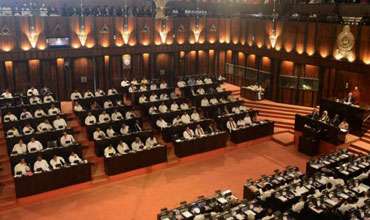Is Western support for Israel crumbling?
By Thalif Deen
UNITED NATIONS (IPS) – When the high-level summit meeting of more than 150 world leaders takes place at the United Nations September 22-30, one of the political highlights will be the announcement by 10 Western nations—strong allies of either the US or Israel—recognising Palestine as a sovereign state.
The 10 countries—some of whom have already extended recognition—include the UK, France, Canada, Australia, Portugal, Malta, Belgium, Spain, Ireland and Norway—proving the longstanding support for Israel is gradually crumbling in the Western world.
According to CNN, Israel’s Foreign Ministry has “rejected” the European nations’ stance, calling it a “reward to Hamas” that undermines efforts to reach a ceasefire, while US President Donald Trump has blasted the calls for recognition.
Still, the US, a relentless supporter of Israel, will exercise its veto in the Security Council against any recognition of a Palestinian state as a full-fledged UN member.
So far, the State of Palestine has been recognised as a sovereign state by 147 of the 193 member states, or just over 76% of all UN members. It has been “a non-member observer state” of the UN General Assembly since November 2012.
Meanwhile, in a new development, the US State Department has revoked or denied US visas to Palestinian delegates, barring them from attending the UN General Assembly sessions later this month.
When Palestine Liberation Organisation leader Yasser Arafat was denied a US visa to visit New York to address the United Nations back in 1988—under the Ronald Reagan administration—the General Assembly defied the United States by temporarily moving the UN’s highest policymaking body to Geneva—for the first time in UN history—providing a less hostile political environment for the PLO leader.
Arafat, who first addressed the UN in 1974, took a swipe at Washington when he prefaced his statement in Geneva by pointing out that “it never occurred to me that my second meeting with this honourable Assembly would take place in the hospitable city of Geneva.”
And now, 37 years later, there is a campaign to once again temporarily move the General Assembly sessions to Geneva to provide a platform for Palestinian delegates who are being denied visas to enter the US.
Sarah Leah Whitson, executive director of DAWN, a nonprofit organisation that seeks to reform US policy on the Middle East, told IPS: “It’s clear that the US is trying to deter any discussion about the genocide in Gaza and Palestinian statehood by revoking the visas of Palestinian officials.”
But it’s also pretty clear "that the world is fed up with the savage Israeli atrocities we are witnessing every day, so we very much hope they will act promptly to move the General Assembly meeting to Geneva just as they did the last time the US pulled such a stunt," said Whitson, a former director of the Middle East and North Africa division of Human Rights Watch.
Moving the meeting to Geneva, she argued, will send a message to the Trump administration that the international community does not tolerate these breaches of long-standing law requiring access to all UN representatives.
In a statement released last week, DAWN said the 1947 US-UN Headquarters Agreement requires the United States to provide unfettered access to UN proceedings for all representatives, regardless of bilateral disputes.
Section 11 establishes an "unrestricted right" for officials to enter the US for UN business, while Section 12 states these provisions apply "irrespective of the relations existing between the governments" and the US.
When, in 1988, the US denied a visa to PLO Chairman Yasser Arafat to attend the UNGA session, the UN responded by adopting a resolution concluding that Washington had violated its obligations under the 1947 Agreement and, as a rebuke, moved its General Assembly meeting from New York to Geneva to allow the Palestinian leader to speak.

UN Photo/Evan Schneider. Protesters demonstrate outside the Columbia University campus in New York City. October 2024
Asked for his comments, Martin S. Edwards, Associate Dean for Academic and Student Affairs, School of Diplomacy and International Relations, at Seton Hall University, told IPS: “In a very real sense, the call to move the meeting is to be expected.”
The Trump administration delights in pursuing policies without regard to the opinions of other countries, so it’s no accident that America First is becoming America Alone, he said.
If countries who have proposed Palestinian recognition follow through, the US will be the only P-5 country on the Security Council yet to do so.
The recent countries that have proposed Palestinian recognition are doing so to shape the Israeli conduct of the Gaza War.
“It makes every bit of sense to use the threat of moving the meeting to Geneva in the very same way. And this points to a second lesson that this White House has yet to learn: when you push on the rest of the world, it can and will push back,” declared Edwards.
Asked about the denial of visas, UN Spokesperson Stephane Dujarric told reporters on August 29: “We are going to discuss this with the State Department. I mean, the Headquarters Agreement deserves to be read—notably, I think, sections 11 and 12.”
“We obviously hope that this will be resolved. It is important that all Member States and permanent observers be able to be represented – especially, I think, in this case, as we know, with the upcoming two-state solution meeting that France and Saudi Arabia will host at the beginning of the GA.”
“We would like to see all diplomats and delegates who are entitled to come here to be able to travel freely,” he said.
Meanwhile, a State Department statement on August 29 says, “In accordance with US law, Secretary of State Marco Rubio is denying and revoking visas from members of the Palestine Liberation Organisation (PLO) and the Palestinian Authority (PA) ahead of the upcoming United Nations General Assembly.”
“The Trump Administration has been clear: it is in our national security interests to hold the PLO and PA accountable for not complying with their commitments and for undermining the prospects for peace.”
“Before the PLO and PA can be considered partners for peace, they must consistently repudiate terrorism—including the October 7 massacre—and end incitement to terrorism in education, as required by US law and as promised by the PLO.
"The PA must also end its attempts to bypass negotiations through international lawfare campaigns, including appeals to the ICC and ICJ, and efforts to secure the unilateral recognition of a conjectural Palestinian state. Both steps materially contributed to Hamas’ refusal to release its hostages, and to the breakdown of the Gaza ceasefire talks.”
The PA Mission to the UN will receive waivers per the UN Headquarters Agreement, the State Department said. "The US remains open to re-engagement that is consistent with our laws, should the PA/PLO meet their obligations and demonstrably take concrete steps to return to a constructive path of compromise and peaceful coexistence with the State of Israel."
-
Still No Comments Posted.
















Leave Comments